Follow us on:
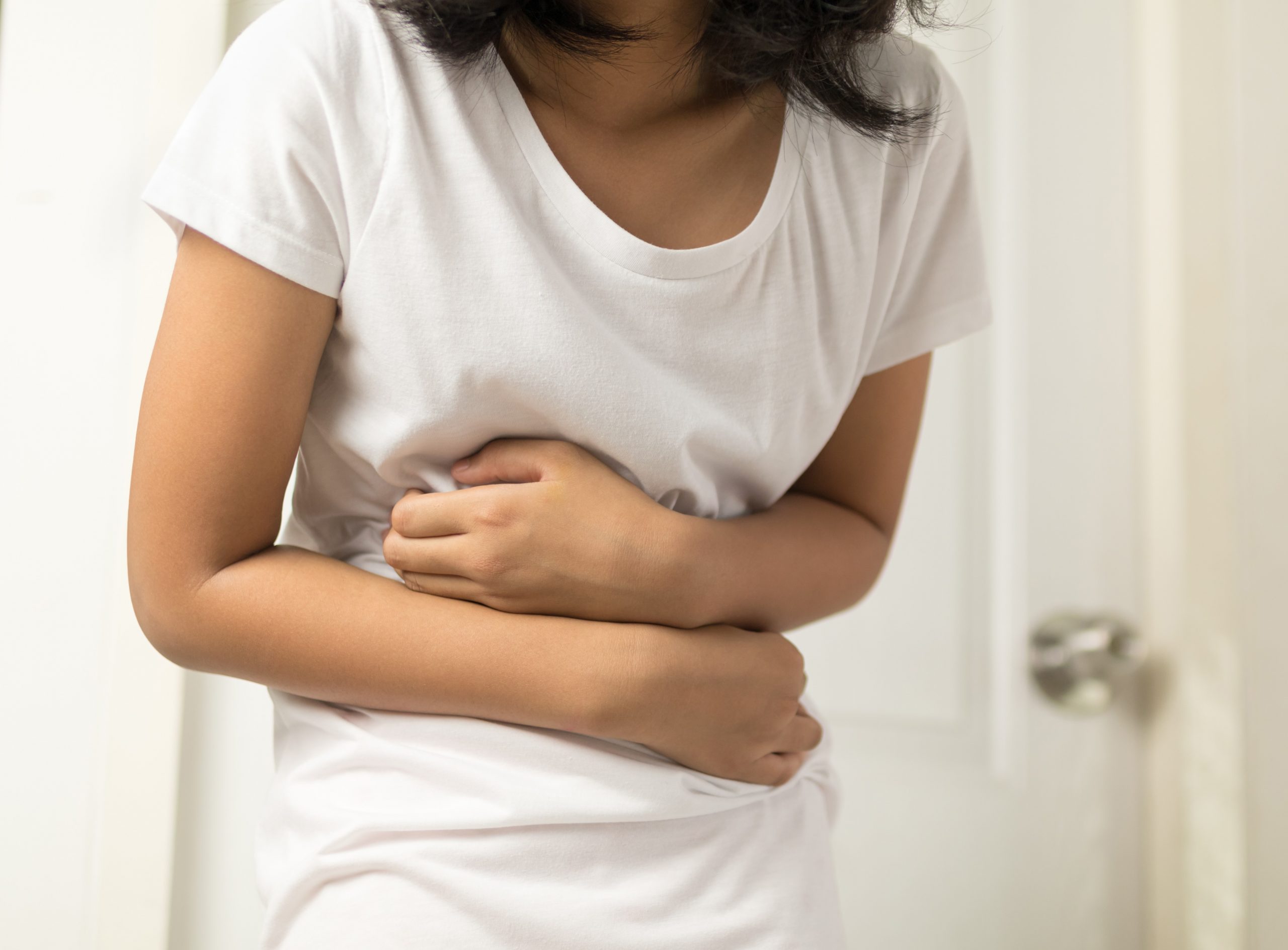
Understanding Uterine Cancer and its Treatment
Dr Lim shared that uterine cancer is the most common gynaecological cancer affecting Singaporean women and 95% of uterine cancer cases are due to endometrial cancer. Fortunately, early endometrial cancer is highly curable so women should consult a doctor if they experience symptoms such as abnormal vagina bleeding. For those diagnosed at a later stage when cancer has already spread, Dr Lim reassures that new personalised and targeted treatment options are more promising and well tolerated than conventional chemotherapy.
Learn more about the key points covered in the summary below. A recording of the talk and Q&A session can be viewed here: https://www.youtube.com/watch?v=BTMQN00X-Uw
#OncoCare #365CPS #CancerPrevention #KnowYourCancer #letsfightcancertogether #uterinecancer
 Uterine cancer is the top gynaecological cancer affecting Singaporean women. Over the past 20 years, the incidence of uterine cancer has increased, and is likely to continue increasing, due to rising prevalence of obesity, diabetes, hypertension and physical inactivity. Also, more women are not having or having fewer children.
Uterine cancer is the top gynaecological cancer affecting Singaporean women. Over the past 20 years, the incidence of uterine cancer has increased, and is likely to continue increasing, due to rising prevalence of obesity, diabetes, hypertension and physical inactivity. Also, more women are not having or having fewer children.
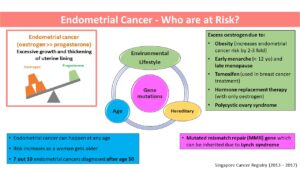 95% of uterine cancers arise from the inner lining, or endometrium, of the uterus and is also known as endometrial cancer. Risk factors of endometrial cancer include age, hormonal imbalance (more oestrogen than progesterone) and gene mutations (e.g. mutated mismatched repair [MMR] gene, which can be inherited).
95% of uterine cancers arise from the inner lining, or endometrium, of the uterus and is also known as endometrial cancer. Risk factors of endometrial cancer include age, hormonal imbalance (more oestrogen than progesterone) and gene mutations (e.g. mutated mismatched repair [MMR] gene, which can be inherited).
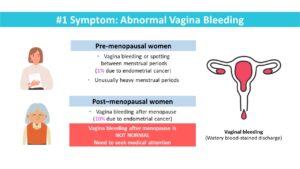 Abnormal vaginal bleeding is an early sign of endometrial cancer and is present in 90% of women with this disease. Other symptoms include difficulty in passing urine or motion, pelvic pain and pain during sexual intercourse. Women at high risk who experience these symptoms should seek help early as there is a 95% chance of curing early-stage endometrial cancer.
Abnormal vaginal bleeding is an early sign of endometrial cancer and is present in 90% of women with this disease. Other symptoms include difficulty in passing urine or motion, pelvic pain and pain during sexual intercourse. Women at high risk who experience these symptoms should seek help early as there is a 95% chance of curing early-stage endometrial cancer.
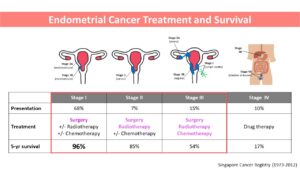 70% of women with endometrial cancer will beat cancer, with a higher chance of survival when diagnosed at an earlier stage. For stage I-III endometrial cancer, the standard treatment is surgery removing the uterus, ovaries, fallopian tubes, cervix and lymph nodes in the pelvis, with or without radiotherapy and/or chemotherapy.
70% of women with endometrial cancer will beat cancer, with a higher chance of survival when diagnosed at an earlier stage. For stage I-III endometrial cancer, the standard treatment is surgery removing the uterus, ovaries, fallopian tubes, cervix and lymph nodes in the pelvis, with or without radiotherapy and/or chemotherapy.
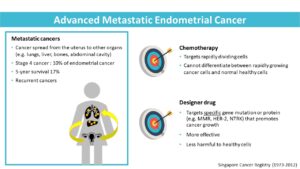 Conventional treatment of stage IV endometrial cancer using chemotherapy only results in a 5-year survival rate of 17%. Fortunately, new personalised treatment methods based on each patient’s cancer molecular profile have shown promise in controlling the spread of cancer, enabling some to even live for up to a few years after diagnosis while enjoying a good quality of life.
Conventional treatment of stage IV endometrial cancer using chemotherapy only results in a 5-year survival rate of 17%. Fortunately, new personalised treatment methods based on each patient’s cancer molecular profile have shown promise in controlling the spread of cancer, enabling some to even live for up to a few years after diagnosis while enjoying a good quality of life.
Know More About OncoCare
OncoCare Cancer Centre is one of the largest and fastest-growing private healthcare providers of oncology in Singapore. OncoCare provides patients with quality cancer care services and treatment administered by highly skilled, qualified medical professionals since 2007.
OncoCare website : www.oncocare.sg
Content Provider: Dr Lim Sheow Lei (Senior Medical Oncologist, OncoCare Cancer Centre), Summarised by : Bena Lim (365CPS Volunteer)
